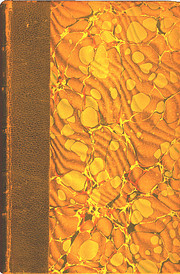

Pulse en una miniatura para ir a Google Books.
|
Cargando... Purity in Print: Book Censorship in America from the Gilded Age to the Computer Age (Print Culture History in Modern America) (edición 2002)por Paul S. Boyer
Información de la obraPurity in Print: Book Censorship in America from the Gilded Age to the Computer Age (Print Culture History in Modern America) por Paul S. Boyer
 Ninguno Actualmente no hay Conversaciones sobre este libro.   ) )sin reseñas | añadir una reseña
The first edition of Purity in Print documented book censorship in America from the 1870s to the 1930s, embedding it within the larger social and cultural history of the time. In this second edition, Boyer adds two new chapters carrying his history forward to the beginning of the twenty-first century. Praise for the first edition of Purity in Print: "Paul Boyer is one of America's most distinguished cultural historians. . . . Taking the censors of an earlier day seriously and getting beyond the caricature of Anthony Comstock, Purity in Print remains one of the most important books on censorship in the United States."-Carl Kaestle, Brown University, co-editor of The History of the Book in America, Volume IV"Clear, informative, and very readable. . . . An excellent and much-needed book."-Publishers Weekly"Thoroughly documented and richly illustrated. . . . Boyer has traced the confusions, the ironies, and the sometimes humorous and sometimes tragic effects of American efforts to cope with the question of what is permissible and what is taboo in the public morality and in the printed word."-George K. Smart, American Quarterly"Boyer has carefully read the sources, interviewed surviving participants in the censorship battles, and has produced an eminently readable and judicious account."-Stow Persons, American Historical Review"Highly readable."-Baltimore Sun. No se han encontrado descripciones de biblioteca. |
Debates activosNingunoCubiertas populares
 Google Books — Cargando... Google Books — Cargando...GénerosSistema Decimal Melvil (DDC)363.3Social sciences Social problems and services; associations Other social problems and services Other Public Safety ConcernsClasificación de la Biblioteca del CongresoValoraciónPromedio: (3.25) (3.25)
¿Eres tú?Conviértete en un Autor de LibraryThing. |
||||||||||||||||||||||||||||||||||||||||||||||||||||||||||||||||||||||||||||||||||||||||||||||||||||||||||||||||||||||||||||||||||||||